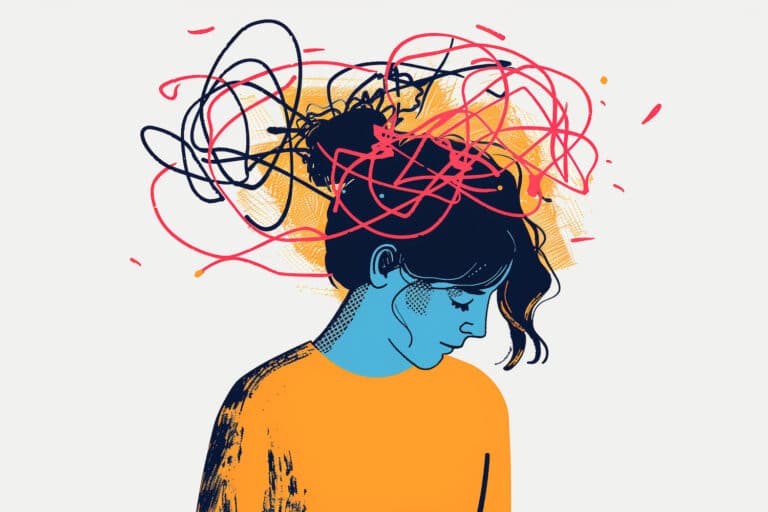The effects of binge eating disorder (BED) may seem obvious such as weight gain. But there are other—more subtle and sometimes more serious—health consequences of binge eating.
We’re going to take a look at those today. If you’re someone who struggles with binge eating disorder, it might be difficult to read through this list. But we’d encourage you to stick with it.
Why You Need to Know About ALL The Health Risks—Not Just Weight Gain
When a person binges on a regular basis, it is possible they will gain weight. We all know this. But it’s important that our knowledge does not stop there.
Weight gain can encourage feelings of shame and a desire to isolate oneself from other people. When this happens, you’re less likely to seek out and receive help.
Alternatively, a person may accept the weight gain, knowing that looks do not matter as much as character. While this is true, you may also ignore symptoms of more serious problems.
Serious Health Complications of Binge Eating Disorder
In addition to weight gain, seven other serious health issues may arise as a result of binge eating disorder:
Type 2 Diabetes
Binge eating increases the likelihood of developing type 2 diabetes, where a person’s body is resistant to insulin. And if binge eating continues, controlling blood sugar levels can become extremely difficult. (2)
Heart Disease
Binge eating puts you at a higher risk for elevated blood pressure and cholesterol—two clear indicators of the potential for a heart attack or a stroke. (2)
Organ Problems
Your heart isn’t the only organ in danger of disease. Binge eating disorder can also cause kidney and liver disease as well as gallbladder issues. (3)
Depression
Binge eating can cause a cyclic mood problem where you eat in order to squash negative emotions, then feel regret and shame because of overeating, followed by another binge to squash these new negative feelings. Many people with binge eating disorder enter into depressive or anxious periods. (2)
Joint Issues
Fast and extreme weight gain puts tremendous pressure on joints and can even create wear and tear on the cartilage inside of your joints, called osteoarthritis, which is painful and sometimes debilitating. (3)
Fertility Problems
For those with reproductive organs, binge eating disorder can be particularly disruptive as it sometimes messes with the menstrual cycle. As a result, it can be difficult to get pregnant. BED may even cause serious complications during pregnancy and delivery.
Stomach Rupture
While rare, binge eating disorder can also create a life-threatening emergency at the end of a binge if the stomach ruptures. Leaked food can cause infection and even sepsis. (1)
If you or a loved one struggle with binge eating disorder, you don’t have to wait for a serious health complication before you get help. Reach out to us today at 205-235-6989.
Resources
- https://www.nationaleatingdisorders.org/learn/general-information/recovery
- https://www.webmd.com/mental-health/eating-disorders/binge-eating-disorder/features/binge-eating-how-much-eat-recovering
- https://www.healthline.com/nutrition/binge-eating-disorder#overcoming-bed
- https://www.verywellmind.com/regular-eating-for-eating-disorder-recovery-4109419




